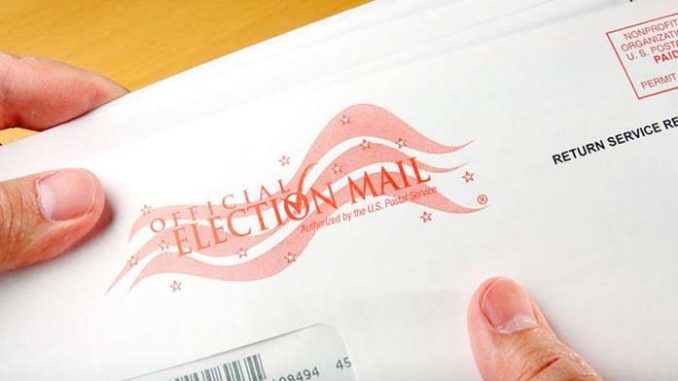
The Trump administration will no longer seek to eliminate a key election integrity tool by Arizona Republicans: documentary proof of citizenship (DPOC).
Arizona Senate President Warren Petersen called the administration’s decision “a major win for election integrity and the rule of law.”
The DOJ’s decision this week comes nearly two months after Petersen requested U.S. Attorney General Pam Bondi to drop the case against Arizona’s DPOC laws. Petersen submitted the letter as the case, Mi Familia Vota v. Fontes, was before the Ninth Circuit Court of Appeals.
“The arguments advanced by the Biden Administration’s Justice Department conjoined a heedless disregard of clear constitutional text with a radical rewriting of federal law,” wrote Petersen in his letter. “No federal court has ever found that the [National Voter Registration Act] purports to regulate the mechanics of obtaining and casting a ballot. And misconstruing the Civil Rights Act’s Materiality Provision to preempt generally applicable state statutes designed to verify registrants’ identity and voting eligibility derogates the law’s text and obvious intent.”
BREAKING: A MAJOR WIN FOR ELECTION INTEGRITY AND THE RULE OF LAW!!!
The DOJ, under @realdonaldtrump, just filed a brief announcing they are REVERSING the Biden challenge and are no longer seeking to overturn Arizona’s documentary proof of citizenship laws!!
This follows my… pic.twitter.com/6RZ4P37qDK
— Warren Petersen (@votewarren) April 9, 2025
Arizona’s DPOC laws required voters using state voter registration forms to confirm their citizenship, disclose their birthplace, and provide documentary proof of residency.
Without DPOC, Arizona laws required rejections of those voter registrations.
Shortly after Petersen submitted his letter, the Ninth Circuit Court of Appeals ruled against Arizona’s DPOC laws as “unlawful measures of voter suppression” which were “enacted with intent to discriminate.” The court ruled ARizona must allow voters to vote in federal elections even if they don’t provide DPOC on the state form.
Petersen’s request was fulfilled just one day after the swearing in of Harmeet Dhillon as the Civil Rights Division assistant attorney general. In addition to serving as counsel for a number of right-wing efforts and public figures, Dhillon served in various leadership roles within the Republican National Committee and the California Republican Party. Dhillon served as the legal advisor on Trump’s unsuccessful 2020 reelection campaign.
Near the end of last month, President Donald Trump issued an executive order requiring DPOC for federal mail voter registration form, as well as requiring a state or local official to record on the registration form the type of document the applicant presented as DPOC.
Attorney General Kris Mayes and Secretary of State Adrian Fontes — who refused to defend Arizona’s DPOC laws — immediately promised to sue the Trump administration over the executive order.
Mayes accused the Trump administration of staging “a coup” of the nation’s democracy by refusing court orders and bringing about levels of danger and instability unseen since the Civil War.
“And I believe in my heart and in my soul that we have never lived in more dangerous times at least since the Civil War. And it’s hard to say those words but I truly believe it,” said Mayes. “I believe that we are in the middle of a coup.”
I believe we’re currently facing a coup in our nation — but I will never stop fighting for the rights of all Arizonans. pic.twitter.com/z1TvRN6VGz
— AZ Attorney General Kris Mayes (@AZAGMayes) April 7, 2025
Mayes and Fontes signed onto a 19-state coalition over the executive order: California, Colorado, Connecticut, Delaware, Hawaii, Illinois, Maine, Massachusetts, Maryland, Michigan, Minnesota, Nevada, New Jersey, New Mexico, New York, Rhode Island, Vermont, and Wisconsin. Mayes and Fontes in a joint press release characterized the executive order as “unconstitutional, anti-democratic, and un-American.”

